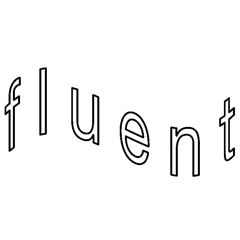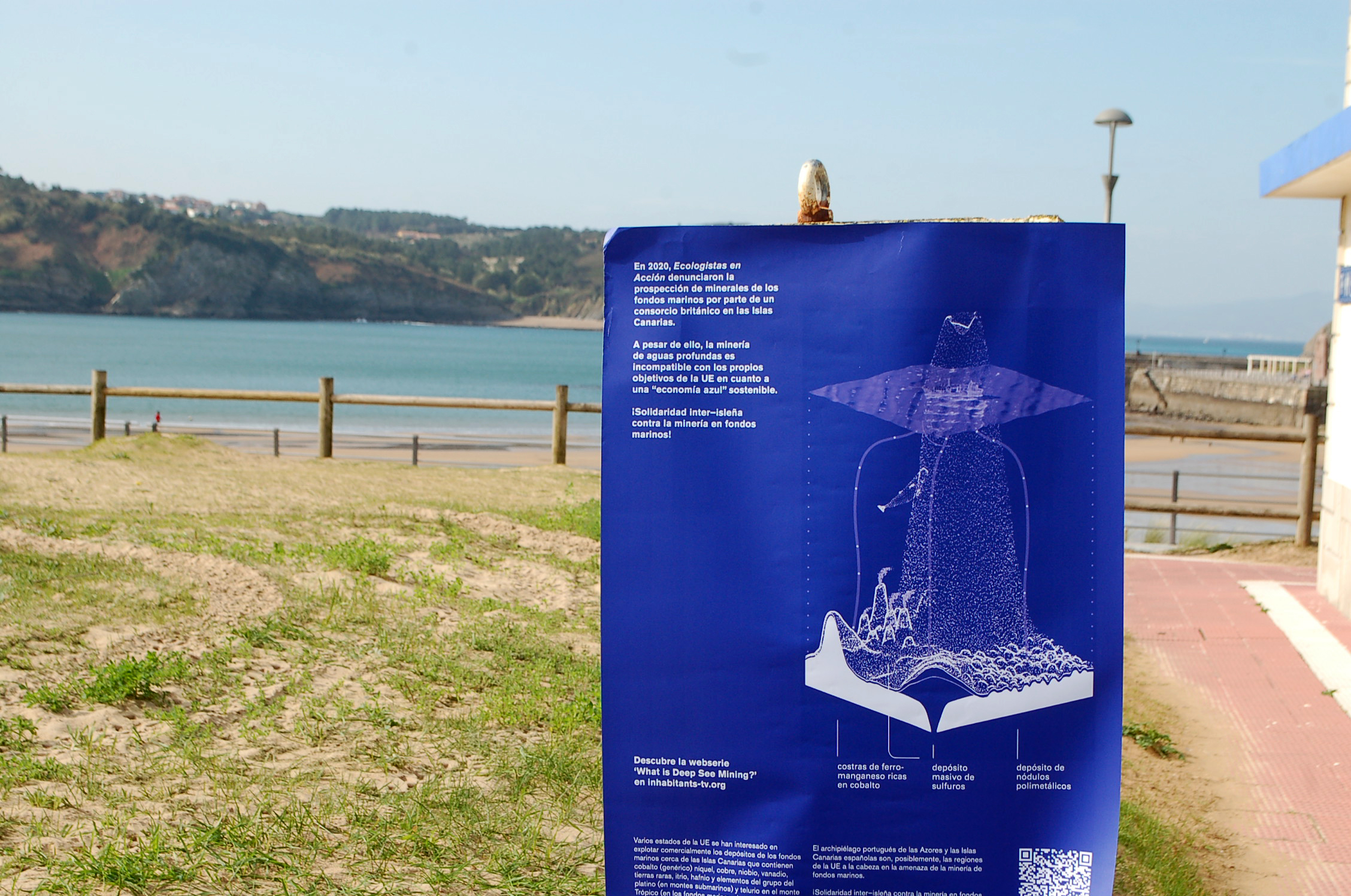Forms of navigation: Cabotage
INHABITANTS: WHAT IS DEEP SEA MINING?
by
Inhabitants’What is Deep Sea Mining? is included in Forms of Navigation: Cabotage, a public collaborative programme between Bulegoa z/b and fluent. The programme is part of Bertatik Bertara/Tan Cerca/So Close 2020, which is due to be staged between Bilbao and Santander, stopping at different points on the Cantabrian coast.
WHAT IS DEEP SEA MINING?
Inhabitants’ contribution to Forms of Navigation: Cabotage is shaped in the form of graphic interventions in collaboration with Margarida Mendes displayed at public spaces in Bilbao and Santander.
The graphic work that they are presenting is part of their research into the deep-sea mining industry, which has turned oceans into the latest frontier of corporative mineral extraction. The graphic draws attention to current explorations that are part of development plans for new undersea mines in the Spanish coasts. The destruction of the ocean floor threatens not only marine life and ecosystems but the entire global fight against environmental injustice and the climate emergency.
Until the end of March you can see the work of Inhabitants mounted as posters everywhere throughout the cities of Bilbao, Santander and surroundings:
BILBAO
Faculty of Engineering of Bilbao, University of the Basque Country
Ekologistak Martxan, Bilbao
University of the Basque Country. Campus of Leioa
PIE. Plentzia Marine Station
Ekoetxea Urdaibai
SANTANDER
Faculty of Sciences, University of Cantabria
Maritime Museum of the Cantabrian Sea
Santander Oceanographic Centre, Spanish Institute of Oceanography
Santander Maritime Station
Librería GIL
Librería La Vorágine
We also invite you to watch their short–videos on inhabitants-tv.org while wandering through the city!
Inhabitants is an online channel for exploratory videos and documentaries intended for online distribution, with each episode focusing on topics that examine extinction, extractivism, environmental crises and the Anthropocene, founded by Pedro Neves Marques and Mariana Silva in 2005.





